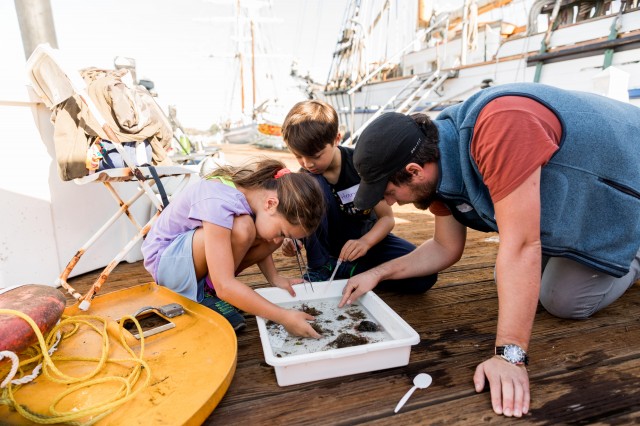The Hart Museum remains closed. Los Angeles County has approved a plan to transfer the William S. Hart Museum and Park from the County to the City of Santa Clarita.
How to DISCO at Home
Creativity powers the DISCO team, no matter where the lab is.
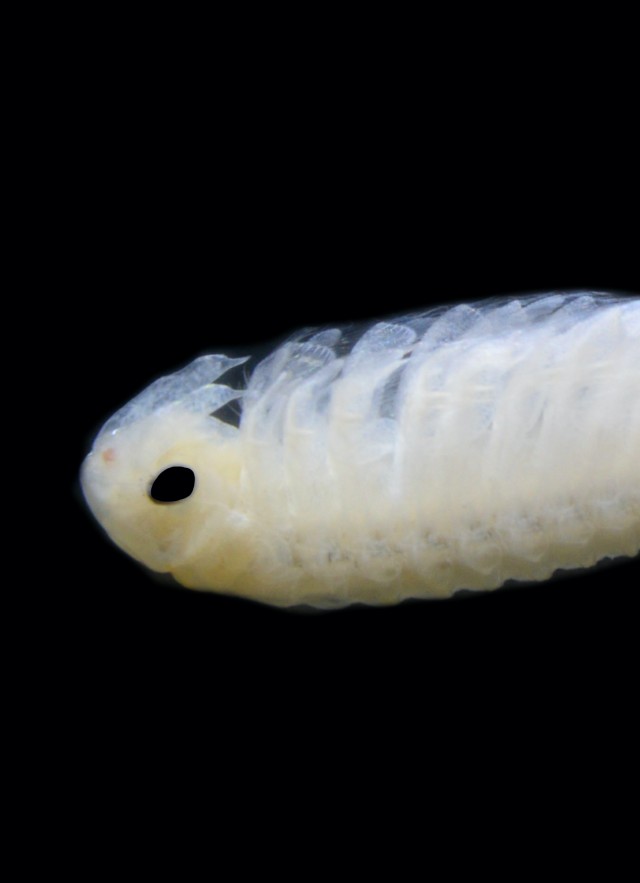
Doing collections based research from home can be surprisingly scary. “There are limits to how much alcohol you can transport in a vehicle without special hazmat shipping arrangements.” Dean Pentcheff, DISCO Project Coordinator, is referring to the transportation of specimens in March as NHMLAC prepared to close along with the rest of Los Angeles County. But science doesn’t stop, even if it does take a few extra trips to get your specimens home safely.
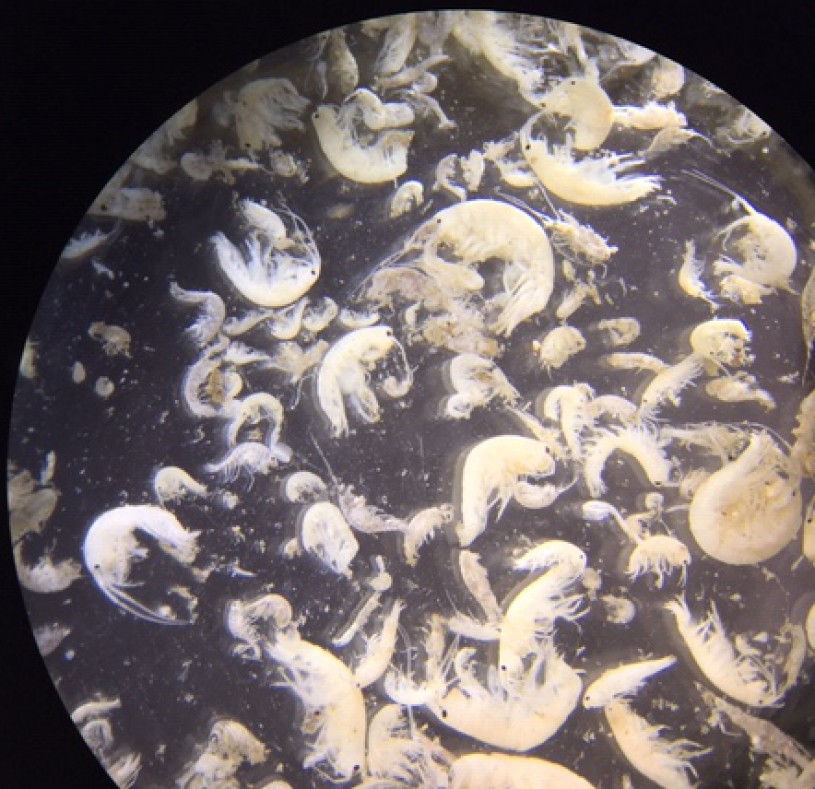
Founded to develop innovative tools to advance biodiversity research, the DISCO (Diversity Initiative for the Southern California Ocean) group brings together multiple departments within Research and Collections to investigate California’s coast and other environments. This group, along with the whole Research and Collections Department, is now continuing its mission at home. This means sitting at the dining room table and sifting through those jars of alcohol to sort and identify specimens of things like mollusks, crustaceans and worms, most of which are only 3 to 5 millimeters. It also means getting creative when it comes to timely collecting and processing new specimens without access to the lab.
The DISCO team leads an ongoing investigation into the biodiversity of local vernal pools. Vernal pools are seasonal ponds of freshwater that provide a home to a wide array of flora and fauna found only in vernal pools and only during the short time period when water is pooled in their pond. Only 5% of California’s vernal pools are left, the rest having been paved over for homes and towns.
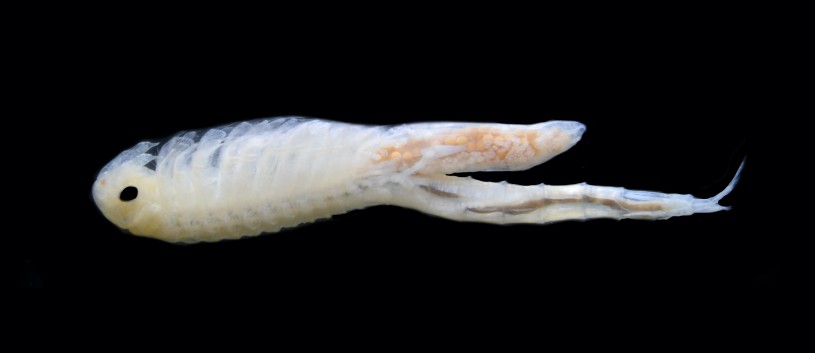
A focal interest in vernal pools are “fairy shrimp”, small crustaceans that live in vernal pools thanks to a life cycle that lets them hatch when it rains, then feed, grow, and produce “resting eggs”, all in a couple of weeks before their pools dry out again. Of the 25 or so species of fairy shrimp in California, five are federally protected because of the rarity of their remaining habitat, and NHM is one of two repositories in the state for specimens of these endangered species. Learning more about vernal pools is critical for developing conservation plans to preserve their biodiversity.
With the fickle springtime rains as the sole water source for these vernal pools, the DISCO team’s desired specimens are only accessible for a few weeks, or even days, a year. The team had to think quickly and act fast to ensure the continuation of this long-term project.
Normally, samples of vernal pool water collected from the spring rainfall would go to NHM for lab processing to extract environmental DNA (eDNA). The samples are collected onto filters that hold onto animal, plant, and microbial cells containing the DNA of interest. First, the material is incubated with enzymes overnight to release the DNA from the cells. Then a centrifuge is used to separate and clean the DNA.
But this spring, the lab isn’t available.
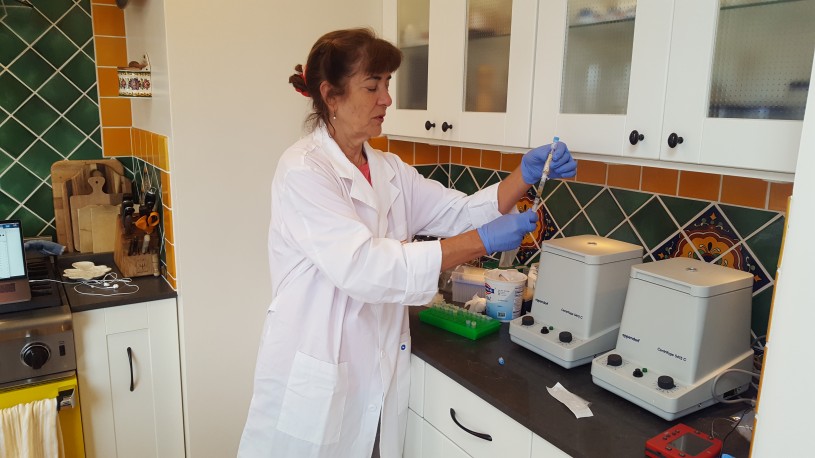
Instead, Pentcheff and Regina Wetzer, Director of NHM’s Marine Biodiversity Center, created a makeshift lab in their kitchen. Wetzer explained, “Our kitchen counter became the home of the tabletop centrifuge machine. Our temperature regulator that we use for baking bread turned our oven into an overnight incubator. A bicycle pump let us force the last of the sample water through the filters.” This home lab setup allows for the processing of 18-20 samples per day as part of this long-term DISCO initiative.
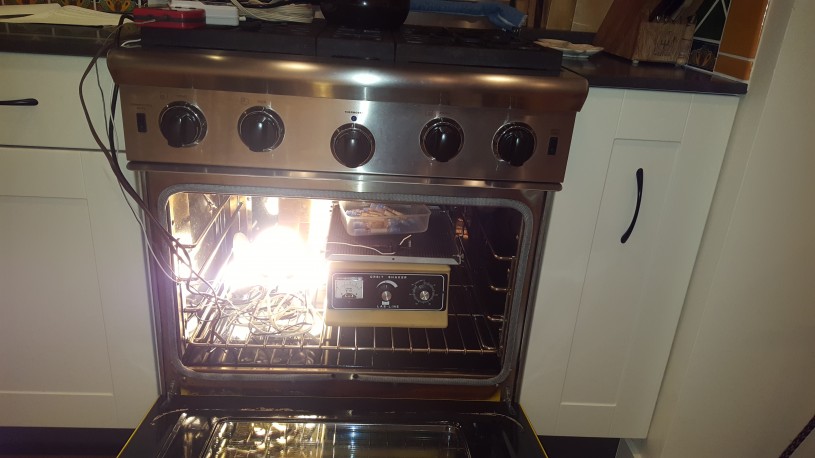
Not only is this work important for monitoring the health of the fairy shrimp population and the other creatures that inhabit vernal pools, but this work with eDNA acts as a stepping stone for more large-scale work with ocean environments. “Lessons learned from working with eDNA in a small, temporary ecosystem can translate in a big way to a larger marine world”.
Pentcheff and Wetzer are thinking outside the box in other ways, too. “We’ve repurposed our orange picker, which we use to pick oranges from our orange tree, to collect kelp that we’re going to use for a development video.” Creativity is seemingly endless for the DISCO team, as these devoted researchers use all of their available resources to ensure that this important work continues, no matter where the lab is that they call home.
